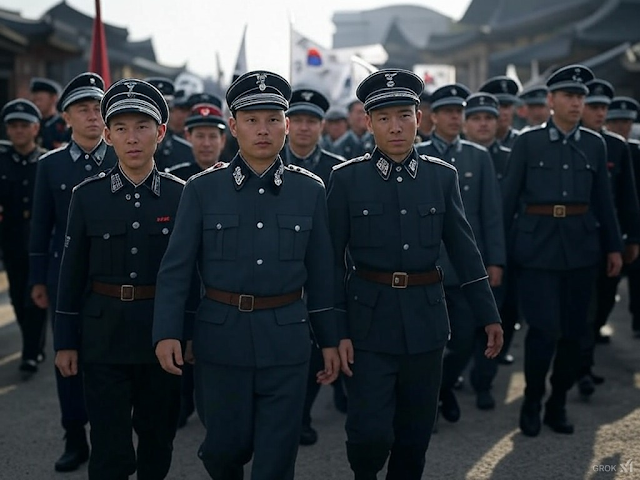Jan. 17, 2024
The Dark Echoes of History: South Korea's 2030 Males and the Shadows of Nazism
In what can only be described as a chilling echo of history's darkest chapters, South Korea finds itself teetering on the brink of civil discord, fueled by the actions of President Yoon Suk Yeol, who has been arrested for his audacious attempt to impose illegal martial law. The irony is not lost on us; the very nation once lauded for its rapid transformation from dictatorship to democracy now faces a specter reminiscent of bygone authoritarian regimes, this time, with a particularly youthful and virulent fanbase.
Yoon's declaration of martial law, ostensibly to combat "anti-state forces," was a thinly veiled attempt at consolidating power, echoing the tactics of past dictators. The swift, albeit temporary, imposition of martial law sent shockwaves through the political landscape, inciting not just national but international alarm. The parallels to the authoritarian tactics of the past are stark; Yoon's actions were a blatant assault on the very democracy South Korea has fought so hard to establish.
This demographic's support for such measures is deeply concerning. One cannot help but draw comparisons to the young, indoctrinated men of the Gestapo, who, under the guise of patriotism, became the enforcers of a regime's darkest deeds. The 2030 males of South Korea, with their rallying cries and defense of Yoon's actions, seem to embody a similar dangerous zeal, potentially ready to plunge their country into civil war rather than see their ideological hero dethroned.
The implications are dire. This isn't just about political support; it's about the erosion of democratic values by a generation that should know better. The elite, the supposed guardians of democracy, now face the daunting task of dealing with this group. Like the post-war denazification in Germany, there's a pressing need for a cultural and ideological re-education, or perhaps more fittingly, a de-radicalization.
Yet, one must wonder, are we too late? The youth, often seen as the future of a nation, have instead become its potential undoing. Their blind faith in Yoon, their acceptance of martial law, and their readiness to suppress dissent under the banner of nationalism, are all too reminiscent of a past we condemned.
The question then becomes, how do we address this? With the same resolve, perhaps, that was used to dismantle the structures of the Third Reich. This means not just political and legal repercussions for those at the top but also a cultural overhaul. Education on democratic values, critical thinking, and the dangers of authoritarianism must be embedded into the very fabric of society.
While the arrest of Yoon might be seen as a victory for democracy, it is but a single step in a marathon of reclamation. The 2030 males, with their misplaced fervor, represent a broader societal malaise that must be addressed if South Korea is to prevent its own history from repeating the atrocities of others'.
In the end, the battle is not just against one man or one misguided policy but against the specter of fascism that seems all too eager to rise again, cloaked in the guise of patriotism and youth. The world watches, and history judges.


